

Those of us who can look back over the last thirty years will not fail to recall Mrs. Lidstone’s friendliness and encouragement, for the social side of the work of South Place had become her especial concern. She was to many of us a kind of unofficial hostess whose very presence was enough to ensure the success of any social gathering, and whose smile and friendly greeting made everyone feel thoroughly at home.
Frederick C. C. Watts, address delivered at Golders Green Crematorium, 13 August 1940
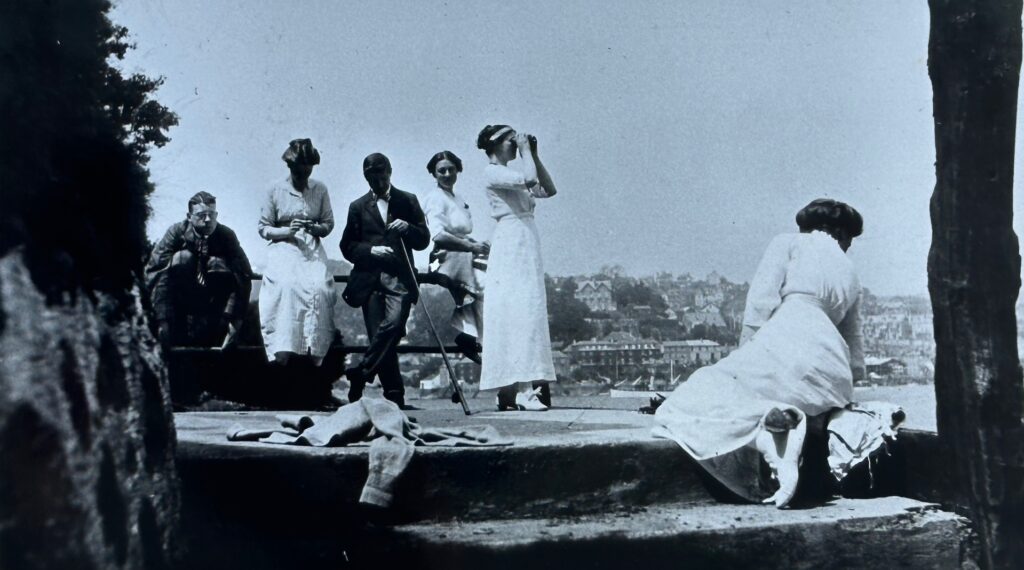
Annie Lidstone was an active member of the South Place Ethical Society (now Conway Hall Ethical Society) for well over half a century, and one of the often overlooked figures from humanist history who played a vital role in fostering the social life of the movement. Her husband, Nicholas Lidstone, was one of the earliest members of the Rationalist Press Association, and also oversaw fundraising for the building of Conway Hall.
Part of an extended humanist family, many of whom were also closely connected to South Place, the Lidstones featured many times over in the pages of R.P.A.’s Literary Guide, and South Place’s Monthly Record, from which the obituaries reproduced below are taken.
From: The Literary Guide, September 1940
We regret to announce the death on August 10 of Mrs. Annie Lidstone in her ninety-third year. She was one of the most active workers in connection with the South Place Ethical Society, the members of which will long retain happy memories of her. The cremation took place at Golders Green, the service being conducted by Mr. Fred Watts. Mrs. Lidstone survived her husband, who was one of the earliest members of the R.P.A., by six years. They were both valued friends of the founder of the organization. To all her family we tender our sincerest sympathy.
From: The Monthly Record, September 1940
MRS. ANNIE LIDSTONE
(From the address delivered at Golders Green Crematorium on August 13, 1940, by Mr. Fred Watts)
Annie Lidstone, who died on August 10, was born in Nottingham in September, 1846, and, even towards the close of her life, spoke often of the childhood she enjoyed there in the Trent Valley, playing on the barges of the canal, of which her father was an official. The picture of that valley, with its wild crocuses, had given her many happy memories.
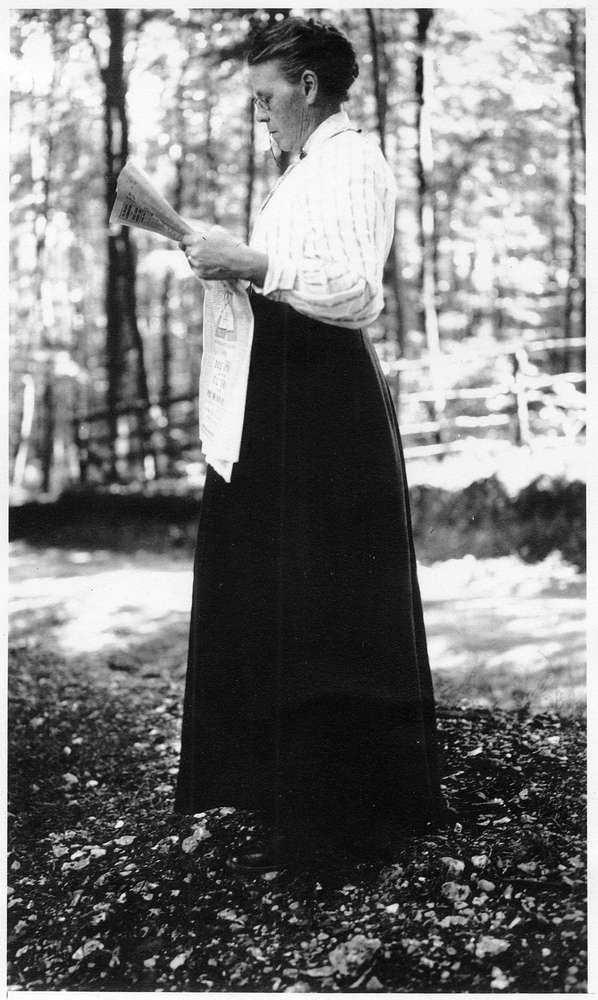
In 1875, when Annie Wells, she married Nicholas Lidstone, whom she had met while he was on a visit to Nottingham, and this was the beginning of one of the happiest of partnerships, which lasted for nearly sixty years, and resulted in the building of a home and a family, around which grew a social circle of the greatest delight and devotion. Shortly after marriage, Mr. and Mrs. Lidstone became members of the South Place Ethical Society and interested themselves enthusiastically in most of its many activities. They had five children—three daughters and two sons—all of whom took a great interest in South Place; and it was a great satisfaction to them both to find their children, their daughters-in-law, and their sons-in-law, and also their grandchildren, taking part in the work of the Society in which they themselves were so keenly interested.
Those of us who can look back over the last thirty years will not fail to recall Mrs. Lidstone’s friendliness and encouragement, for the social side of the work of South Place had become her especial concern. She was to many of us a kind of unofficial hostess whose very presence was enough to ensure the success of any social gathering, and whose smile and friendly greeting made everyone feel thoroughly at home. As within the Society itself, so in her own home she proved herself a wonderful mother and home-maker. Her resolution was exemplified by the fact that when her children were young she would drive them in a wagonette from North London to their week-end home at Stoke Common; while in recent years, in spite of her great age, her visits to London, usually on the spur of the moment and unaccompanied, were of almost weekly occurrence. Until her recent short illness her faculties were unimpaired, and her mentality remained keen and alert almost to the end of her life.
With Love From Violet… The Suffragist Connection by Anita Corbin | First Women
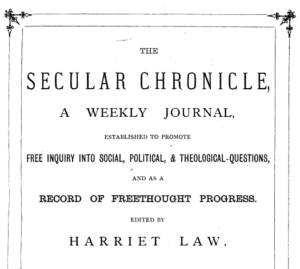
This article appeared in The Secular Chronicle (Vol. V, No. 1), 2 January 1876. It marked the first issue edited […]
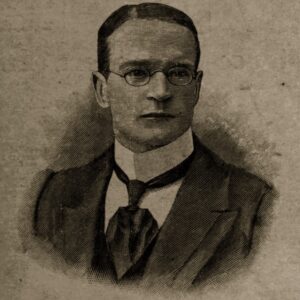
Rationalism is… primarily a mental attitude, not a creed or a definite body of negative conclusions. No uniformity of opinions […]
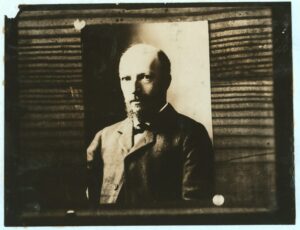
In order to find meaning to one’s life, one must find a meaning in the life of the [human] race. […]
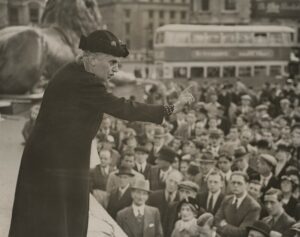
Only victory will put an end to it all. But meantime let no one say: ‘We are not responsible.’ We […]